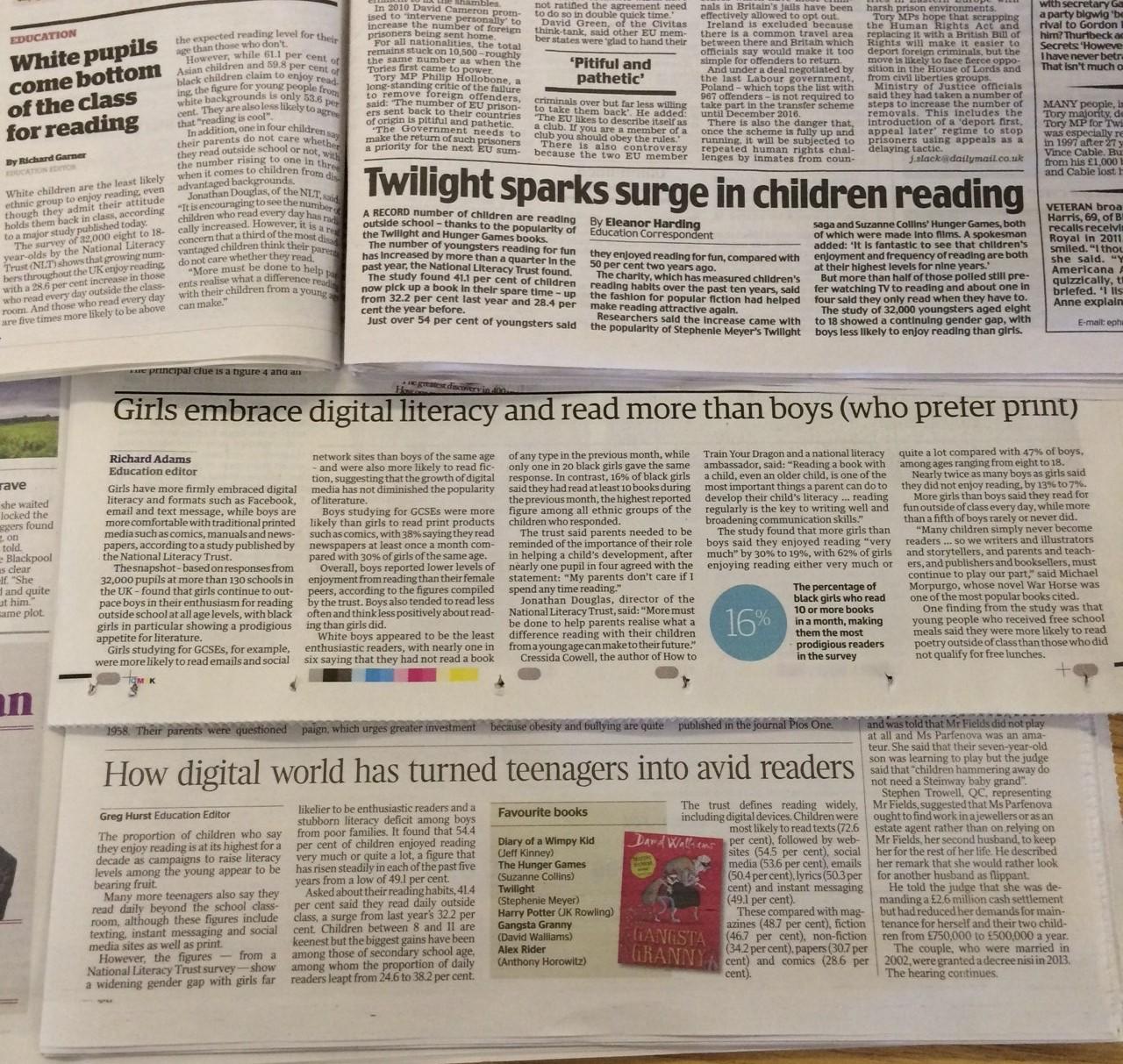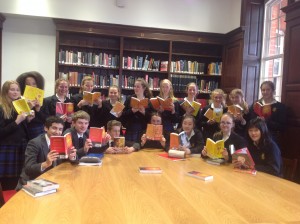The National Literacy Trust questioned 32,000 pupils aged eight to 18 and the survey suggests ‘enjoyment and frequency of reading are both at their highest levels for nine years’ (BBC News)
This is such positive news and it’s encouraging to see that the press have picked it up. I heard Jonathan Douglas of the National Literacy Trust talking about the report on Radio 5 Live yesterday morning. It was a very brief interview but he highlighted the fact that they’d included questions on digital reading in the survey this time. He mentioned that it is as important for children to be able to read emails as it is for them to read Jane Austen today.
My only gripe is the lack of mention of school librarians and school libraries in the press coverage. As school librarians we are passionate about inspiring young people to read for pleasure and promote an enthusiastic reading culture in our schools – whether it be fiction or popular science, biography, history – you name it we encourage it! Key to enthusing children and young people to read is allowing them the freedom to choose their own reading material and not be judgemental. I only hope this report doesn’t bring in its wake articles criticising children’s reading choices. As adults we don’t all read weighty classics all of the time!
School librarians are experts in books for children and young adults. We read as many books as possible, keep up with the latest releases through The Bookseller, School Librarian publication and the press. Film tie-ins are hugely popular with our pupils and we make sure we stock these. We offer e-books which can be read on pupils’ phones and other mobile devices so that they need never be without a good book in the holidays.
As the report acknowledges, reading initiatives are a great way of inspiring children. The Summer Reading Challenge in UK public libraries engages younger children in particular and teenagers as ‘reading activists’. In our school Shadowing the Carnegie Book Award gets pupils reading the same 8 shortlisted novels and heated debates occur over there responses to the books. Although the survey found that boys are reading less than girls in our school the boys often appear to be keener to share their reading and ask for book recommendations. Our breaktime ‘Book Chat’ book club is frequently boys only although a few girls are starting to come along.
Parents can help too by reading with their children but also as reading role-models – sharing their book choices and reading with their children.
Press coverage of the children’s reading habits survey.
It’s interesting to see the way the different newspapers and news websites emphasise different aspects of the report:

The BBC reports that ‘Increasing numbers of UK schoolchildren are choosing to read in their spare time, with six in 10 having a favourite work of fiction, research suggests’
BBC News More pupils than “reading for pleasure” Useful summary of the survey findings in this report.
The Guardian headline focuses on digital media ‘girls like digital media while boys prefer print
The Telegraph reports that Girls ‘are reading more than boys,’ boosted by ‘Twilight effect’ ….’novels like Twilight make reading “cool” for girls, new research shows

Completely agree about your point about school librarians! I give talks to adults about the value of reading for pleasure (and specifically the health benefits – I’ve coined the word “readaxation” and am investigating the health/wellbeing effects of reading for pleasure) – and I regularly berate all those in govt who seek to make cuts to funding of school libraries. This is no justification or logic for doing so.
Many thanks for your support Nicola. I just gave a talk to a wonderful group of parents keen to enthuse their children about reading for pleasure. We emphasised the importance of free choice of reading materials for young people and that it is crucial that adults are not judgmental about those choices.
I’d be very interested to hear more about your research.
Lucy